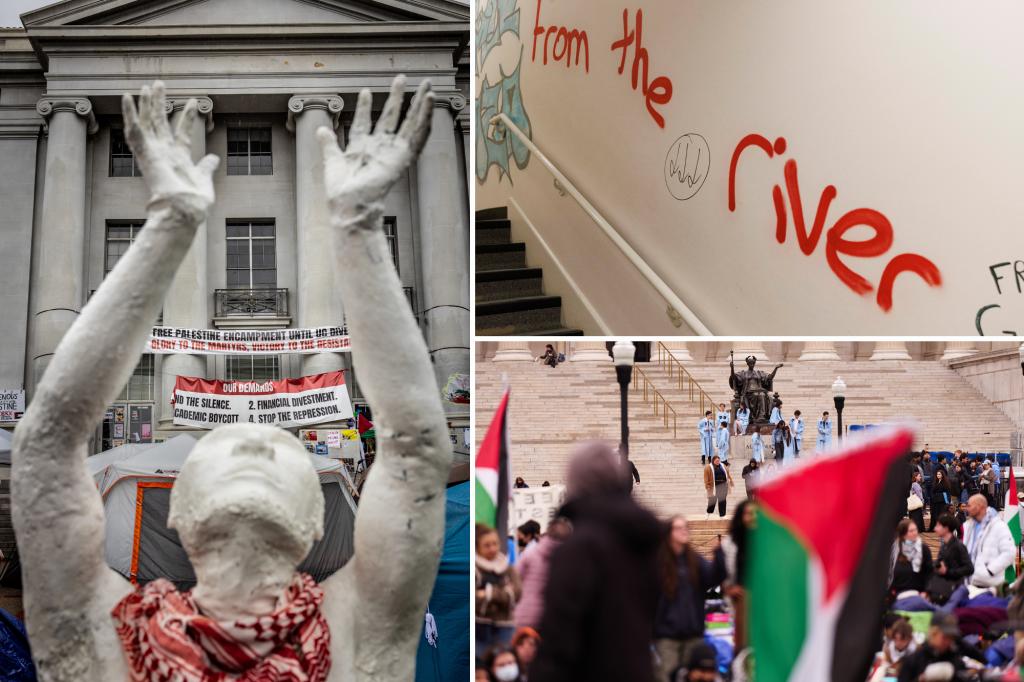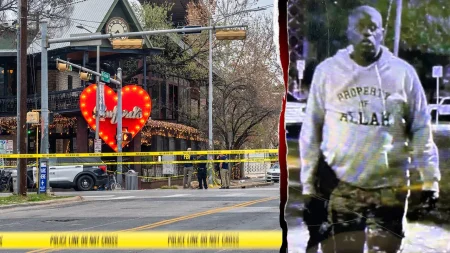The US Department of Education, under the direction of former President Trump, has launched an investigation into five universities, including Columbia University, Northwestern University, Portland State University, the University of California, Berkeley, and the University of Minnesota, Twin Cities, for alleged “widespread” antisemitic harassment. This investigation stems from the tumultuous spring of 2024, when anti-Israel protests, sparked by Israel’s retaliatory strikes on Gaza following Hamas’ October 7th attack, escalated across college campuses nationwide. The Department of Education asserts that these universities tolerated antisemitic harassment and disruptive encampments that negatively impacted Jewish student life and religious expression. They criticize the Biden administration’s previous responses as inadequate and aim to hold these institutions accountable for fostering an environment hostile to Jewish students.
The protests, originating with student encampments at Columbia University, spread to campuses from Maine to Alaska, often involving clashes between anti-Israel and pro-Israel demonstrators. The encampments, organized by groups like Students for Justice in Palestine, demanded university divestment from Israel and companies supporting Israel. These demonstrations frequently included chants and slogans deemed antisemitic by some, further exacerbating tensions on campus. The Department of Education’s investigation will focus on whether the universities adequately addressed these incidents and protected Jewish students from harassment and discrimination, as mandated by Title VI of the Civil Rights Act of 1964.
The investigation is based on Title VI of the Civil Rights Act of 1964, which prohibits discrimination based on national origin and shared ancestry in federally funded programs, including universities. This probe aligns with an executive order signed by President Trump instructing federal agencies to identify legal avenues to combat antisemitism, including potential deportation of students on visas found to have engaged in antisemitic acts. Critics argue that the executive order and the subsequent investigations may infringe on free speech rights and unfairly target pro-Palestinian activism. However, the Department of Education maintains that the focus is on addressing harassment and discrimination, not suppressing political expression.
Columbia University, the epicenter of the initial protests, faced intense scrutiny after Students for Justice in Palestine established the first of several anti-Israel encampments on college campuses. These encampments, termed “Liberated Zones,” operated around the clock, disrupting campus activities and prompting clashes with counter-protesters. The university eventually called in law enforcement to dismantle the encampments and restore order, resulting in arrests of students and community members. While some students were temporarily suspended, none were expelled, a decision criticized by some members of the Jewish community who felt the university’s response was inadequate.
The events at Columbia, and similar incidents at other universities under investigation, ignited a debate about the balance between free speech and protecting students from harassment. Critics of the protests argue that anti-Israel rhetoric often crosses the line into antisemitism, creating a hostile environment for Jewish students. Supporters of the protests maintain that their activism is directed at the policies of the Israeli government and does not constitute antisemitism. The Department of Education’s investigation will delve into the specifics of the incidents at each university to determine whether the line between protected speech and discriminatory harassment was crossed.
The fallout from the protests, particularly at Columbia University, resulted in a significant decline in donations, reportedly a 29% drop totaling approximately $21.4 million. This financial impact underscores the polarization surrounding the issue and the challenges universities face in navigating these complex situations. Columbia University has stated its commitment to combating antisemitism and ensuring the safety and well-being of all students, faculty, and staff. However, critics argue that their actions during the protests were insufficient and failed to adequately address the concerns of Jewish students. The Department of Education’s investigation will ultimately determine whether the universities fulfilled their obligations under Title VI and took appropriate steps to prevent and address antisemitic harassment.









